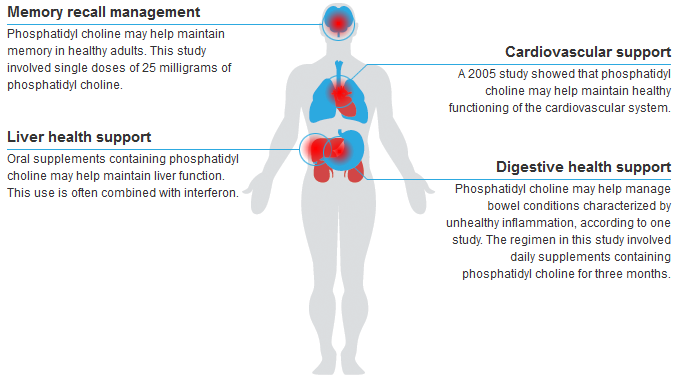Phosphatidyl choline, an essential component of cell membranes and pulmonary surfactant, is a versatile supplement that supports digestive health, liver function, memory recall, and cardiovascular health, making it beneficial for those experiencing anxiety, memory loss, low moods, skin conditions like eczema, and circulatory issues.
Phosphatidyl choline is a collective term for any phospholipid with a choline head group. They are an essential component in cell membranes and serve a variety of other purposes.
The French chemist Theodore Nicolas Gobley first isolated phosphatidyl choline from egg yolk in 1847. He initially named it "lecithin" after the Greek word lekithos, meaning egg yolk. Phosphatidyl choline was later given its current name, and the definition of lecithin was expanded to include all brown or yellow fatty substances. Gobley also determined phosphatidyl choline’s chemical structure in 1874.
All plant and animal cells contain some phosphatidyl choline, although meats are its most abundant dietary source. Other sources of animal protein such as egg yolks also have significant levels of phosphatidyl choline. Sunflower seeds and soybeans are amongst the best plant sources of phosphatidyl choline, which are also phosphatidyl choline’s primary commercial source. The commercial production of phosphatidyl choline may involve mechanical extraction with a press or chemical extraction with hexane.
In addition to cell membranes, phosphatidyl choline is also a component of pulmonary surfactant. Phosphatidyl choline is believed to be transported between cell membranes by phosphatidylcholine transfer protein (PCTP). It also plays an important role in cell signaling and PCTP’s activation of enzymes.
The presence of phosphatidyl choline in all cells provides it with many uses as a health supplement. Its most common uses include the support of digestive health, liver health, memory recall management and cardiovascular function.
Phosphatidyl choline may help maintain memory in healthy adults. This study involved single doses of 25 milligrams of phosphatidyl choline.
Oral supplements containing phosphatidyl choline may help maintain liver function. This use is often combined with interferon.
A 2005 study showed that phosphatidyl choline may help maintain healthy functioning of the cardiovascular system.
Phosphatidyl choline may help manage bowel conditions characterized by unhealthy inflammation, according to one study. The regimen in this study involved daily supplements containing phosphatidyl choline for three months.

The most significant signs that you may need phosphatidyl choline relate to its role in the synthesis of the neurotransmitter acetylcholine. These signs primarily include anxiety, memory loss and low moods. Skin conditions such as eczema may indicate that phosphatidyl choline could benefit you. Liver and kidney conditions may also mean that you need phosphatidyl choline. Cardiovascular signs that may indicate phosphatidyl choline could help you include poor circulation and an unhealthy cholesterol profile.
Shipping calculated at checkout
